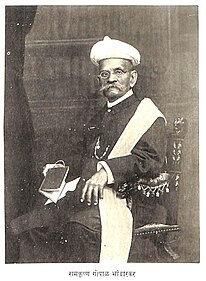 W
WSir Ramakrishna Gopal Bhandarkar was an Indian scholar, orientalist, and social reformer.
 W
WBhaskararaya (1690–1785) is widely considered an authority on all questions pertaining to the worship of the Mother Goddess in Hinduism. He was born in Hyderabad, Telangana, was welcomed by king Serfoji II of Bhonsle dynasty in South India, and thereupon he settled in Tamil Nadu. According to Douglas Renfrew Brooks, a professor of Religion specializing in Shaktism studies, Bhaskararaya was "not only a brilliant interpreter of Srividya, he was an encyclopedic writer", and that he was a "thinker who had the wealth of Tantric and Vedic traditions at his fingertips". He belonged to the Kaula tradition of the Shakta Tantrism.
 W
WBidarahalli Srinivasa Tirtha was an Indian Hindu scholar and theologian in the Dvaita Vedānta tradition. He is a prolific glossator of the early 17th century. He is the follower of Uttaradi Math and the disciple of Yadupati. According to tradition, Raghavendra Tirtha conferred on him the ascetic title of "Tirtha" by way of appreciation of his learning and contributions.
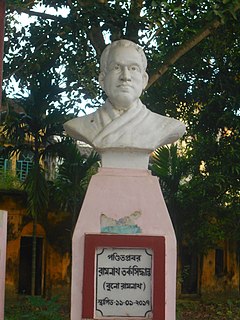 W
WRamnath Tarkasiddhanta, popularly known as Buno Ramnath, was a prominent logician, scholar and ideal teacher of Nabadwip in the eighteenth century. He was called Buno as he had set up his Chatuspathi in a forest area.
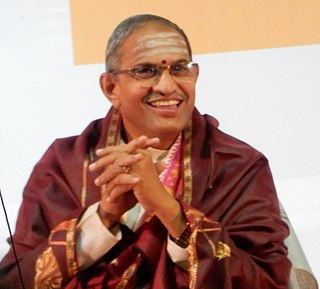 W
WChaganti Koteswara Rao is an Indian speaker known for his discourses on Sanatana Dharma. An exponent in puranams, his discourses are widely followed and are telecast over television channels such as Bhakti TV and TTD and is quite popular among the Telugu speaking people all over the world. He was also appointed as cultural adviser for the government of Andhra Pradesh in 2016. He was also one of the 10 ambassadors Swacch Andhra Corporation. He is also roped in by the state government activities. He was bestowed with titles like Pravachana Chakravarti, and Sarada Jnana Putra.
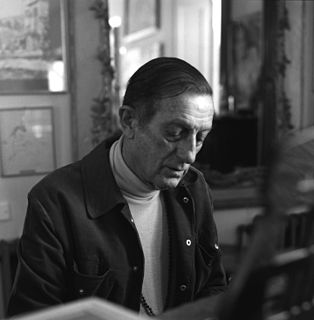 W
WAlain Daniélou was a French historian, intellectual, musicologist, Indologist, and a noted Western convert to and expert on Shaivite Hinduism.
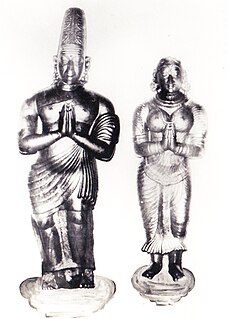 W
WGovinda Dikshita (Dikshitar) was the minister of three successive Nayaks of Thanjavur, who ruled the region of Thanjavur in South India between the 16th and 17th centuries CE.
 W
WSant Eknath, commonly known as Sant (saint) Eknath was an Indian Hindu saint, philosopher and poet. He was a devotee of the Hindu deity Krishna and is a major figure of the Warkari tradition. Eknath is often viewed as a spiritual successor to the prominent Marathi saints Dnyaneshwar and Namdev.
 W
WPandit Pandharinathacharya Galagali was a Sanskrit scholar, author, poet, journalist, and orator. He has authored over 50 books in Kannada and Sanskrit, among which are Shri Shambhu Linga Vijaya Champu (Sanskrit), Raaga Viraga (Kannada), Bharata Swaatantraya Sangramasya Itihasaha (Sanskrit), and Mahabharatada Mahileyaru (Kannada). He was also the editor of five Kannada and Sanskrit newspapers for over four decades.
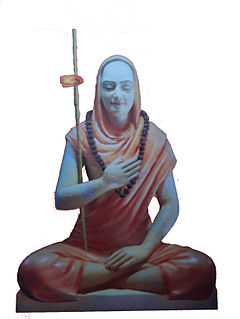 W
WGauḍapāda, also referred as Gauḍapādācārya, was an early medieval era Hindu philosopher and scholar of the Advaita Vedanta school of Hindu philosophy. While details of his biography are uncertain, his ideas inspired others such as Adi Shankara who called him a Paramaguru.
 W
WBannanje Govindacharya is a Sanskrit scholar versed in Veda Bhashya, Upanishad Bhashya, Mahabharata, Puranas and Ramayana. He has written Bhashyas or commentaries on Veda Suktas, Upanishads, ShataRudriya, BrahmaSutra Bhashya, Gita Bhashya and is an orator. He has written new Vyakarana Sutras where Panini has left and also done vyakhyana for the words written before Panini. He synchronised all the philosophical texts to understand all the texts are composed by Vedavyasa. He is one of the greatest exponents of Bhaagavata chintana and has commented on the philosophical meaning of Bhagavata and other Puranas. Even though by birth he is the follower of Madhavacharya, he had studied Mayavada and other philosophies and then read Madhavacharya's Tattvavaada. He is a well known philosopher, speaker in Sanskrit and Kannada. He has around 4000 pages of Sanskrit Vyakhyana to his name with 50 odd books and around 150 books, including those in other languages. He has written screen play for the Sanskrit film "Bhagavadgita" and Shankaracharya. He hails from Bannanje locality of Udupi in Karnataka, India. He was born in 1936. He is in particular one of the greatest experts on the Madhvas Tattvavada or Madhva philosophy. He is best known for his pravachanas or discourses which are very popular among Tuluvas and Kannadigas all over the world. His Speeches have covered almost all the philosophical texts and amount to more than 10000 hours. His pravachanas (discourses) have made him a household name among Tuluvas and Kannadigas. He is very popular in Kannanda literary world and hailed by Jnaanapeetha awardee Da.Ra.Bendre. He has also written on this Naaku-Tanti. His literary achievements also include his translation and commentaries of the complete texts of Shri Madhwacharya. He was awarded the Padma Shri by the Government of India in 2009.
 W
WKavīndra Tīrtha (Sanskrit:कवीन्द्रतीर्थ);, was a Dvaita philosopher, saint, scholar and the seventh pontiff of Madhvacharya Peetha - Uttaradi Math from 1392-1398.
 W
WRaghuvarya Tirtha was a Hindu philosopher, scholar, theologian and saint. He served as the pontiff of Shri Uttaradi Math from 1502-1557. He was the thirteenth in succession from Madhvacharya. According to tradition Sri Raghuvarya Tirtha taught the famous Nyayasudha of Jayatirtha seven times to his disciples.
 W
WAnantanand Rambachan is a professor of religion at St. Olaf College.
 W
WSri Satchidanandendra Saraswati Swamiji was monk-scholar in the Shankara Advaita tradition. He is the founder of the Adhyatma Prakasha Karyalaya in Holenarasipura, Hassan district, Karnataka, India. He was a great Vedantin of Advaitha Philosophy.
 W
WBrahmasri Samavedam Shanmukha Sarma is a popular person on television in India, and well appreciated for his commentary/discourses on Rudra Namakam, Vishnu Sahasranamam, Sivanandalahari, Soundarya Lahari, Lalitha Sahasranamam, Siva Tatvam, Ganapathi Tatwam, Sri Krishna Tatwam, Ramayanam, Bhagavatam, the Bhagavad Gita, Mahabharatham, Dakshinamurti Tattvam, Sutha Samhitha, Aditya Hrdayam and the kritis of different Vaggeyakaras.
 W
WSatyadharma Tirtha, was a Hindu philosopher, scholar, theologian and saint belonging to the Dvaita order of Vedanta. He was the 28th pontiff of Uttaradi Math since Madhvacharya from 1797-1830.
 W
WSatyanidhi Tirtha was a Hindu philosopher, scholar and saint. He served as the pontiff of Shri Uttaradi Math from 1638–1660. He was the 19th in succession from Madhvacharya. Satyanidhi Tirtha ruled the pontificate with a remarkable distinction. His life was a saga of supreme spiritual achievements.
 W
WSatyasandha Tirtha, was a Hindu philosopher, scholar, mystic and saint. He was the 26th pontiff of Uttaradi Math and served the pontificate from 1783-1794.
 W
WSatyavara Tirtha was an Indian philosopher, scholar and the pontiff of Uttaradi Math, a math (mutt) dedicated to Dvaita philosophy. He was the successor of Satyasandha Tirtha and the 27th pontiff of Uttaradi Math since Madhvacharya, the chief proponent and the one who rejuvenated this Dvaita philosophy and served the pontificate from 1794—1797.
 W
WSatyavrata Tirtha was a Hindu philosopher, yogi, mystic, scholar and saint. He served as the pontiff of Shri Uttaradi Math from 1635-1638. He was the 18th in succession from Madhvacharya. Satyavrata Tirtha ruled the pontificate with a remarkable distinction. His life was a saga of supreme spiritual achievements. He is a yogi of remarkable spiritual powers and a philosopher of wide fame.
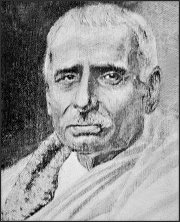 W
WHara Prasad Shastri, also known as Hara Prasad Bhattacharya, was an Indian academic, Sanskrit scholar, archivist and historian of Bengali literature. He is most known for discovering the Charyapada, the earliest known examples of Bengali literature.
 W
WTamal Krishna Goswami, born Thomas G. Herzig in New York City, New York, United States, served on the International Society for Krishna Consciousness's Governing Body Commission since its inception in 1970. He completed a bachelor's degree in religious studies at Southern Methodist University.
 W
WSri Satyabodha Tirtha was an Indian philosopher, scholar, yogi, mystic and saint. He was the 25th pontiff of Uttaradi Math and served the pontificate from March 1744 - 9 March 1783. Satyabodha Tirtha was a great yogi and was honoured by both Hindu and Muslim rulers of his time. Satyabodha Tirtha enjoyed a good fame as a miracle-man. Almost all the princes of the South India used to worship him and were his ardent disciples. Murari Rao of Gooty, Raghoji Bhosale and Fateh Singh Rao Gaekwad, were his great disciples. Satyabodha Tirtha Swamiji's mission of peace has played a prominent role during this time. He earned a reputation as the greatest of Madhva saints of his time for his un-rivaled scholarship, miraculous achievements and dynamism as the pontiff of the Uttaradi Math. So many were his achievements and so well was he liked, admired and respected by people of all castes and creeds, rich and poor, that the Uttaradi Math in Savanur got the name as Satyabodha Math after him.
 W
WThe Advaita Parivāra is the succession of disciples descending from Śrī Advaita Ācārya, the joint avatāra of Śrī Sadāśiva and Mahāviṣṇu. It is one of the main branches of the Gauḍīya Vaiṣṇava sampradaya, which started with Śrī Caitanya Mahāprabhu.
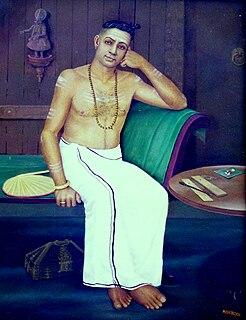 W
WUnnayi Warrier was a poet, writer, scholar, dramatist who lived in Kerala, India during the later part of the 18th century. He is best known for his chef-d'oeuvre Nalacharitham aattakatha and is known to have made significant contributions to the art of Kathakali, the classical dance-drama form of Kerala.
 W
WVedesa Tirtha, was an Indian Hindu scholar and theologian in the Dvaita Vedānta tradition. He was the disciple of Raghuttama Tirtha and Vedavyasa Tirtha, and is the most celebrated name in the annals of the Dvaita Vedanta. He is a Bidi-Sanyasi and not pontiff of any mutt.
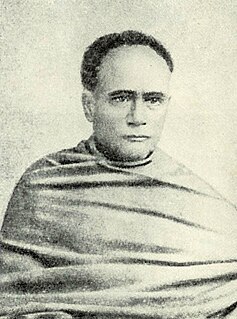 W
WIshwar Chandra Vidyasagar CIE, born Ishwar Chandra Bandyopadhyay, was an Indian educator and social reformer. His efforts to simplify and modernise Bengali prose were significant. He also rationalised and simplified the Bengali alphabet and type, which had remained unchanged since Charles Wilkins and Panchanan Karmakar had cut the first (wooden) Bengali type in 1780. He is considered the "father of Bengali prose".
 W
WBidarahalli Yadupati Acharya was an Indian Hindu scholar in the Dvaita Vedānta tradition. He is the follower of Uttaradi Math and the disciple of Vedesa Tirtha.